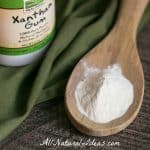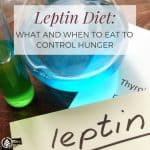The AIP diet, also known as the Autoimmune Protocol diet, may help those with chronic diseases manage or even eliminate symptoms. However, sticking to this eating plan requires eliminating many foods—and dogged persistence. Lets learn about what the protocol calls for….

Got dermatitis, psoriasis, rheumatoid arthritis, or any other of the 100 or so autoimmune diseases? [SOURCE]
If so, functional medicine doctors, such as the host of PBS’s “Metabolism Makeover,” Amy Myers, M.D. , say that following the AIP diet can drastically improve your condition.
Proponents of the plan believe that by avoiding several categories of food that lead to leaky gut, inflammation in the body will become greatly reduced.
What is the AIP Diet?
It’s a meal plan for people with autoimmune diseases. It can also help other conditions that are inflammatory in nature. The purpose of the protocol is to strengthen the health of the digestive system.
After all, the gut is like a second brain. In fact, it communicates with the brain and vice versa. This gut-brain axis is crucial for optimal health. However, eating foods that can cause the body to attack itself further erodes gut-brain communication. This is the case of autoimmune disorders.
With poor communication between the gut and brain, not only is digestion problematic, mood is affected. So, too, are:
- Skin (rashes, bumps, scales and itchiness)
- Muscles and joints (pain, lack of mobility)
- Thyroid hormone (always cold and tired)
One key thing to avoid or greatly reduce symptoms is by following an AIP elimination diet.
What foods should you avoid?
Let’s start with the obvious ones:
- Wheat/Gluten
- Tree nuts
- Soy
- Dairy
- Eggs (even if you’re not allergic, egg whites are bad if you have an autoimmune disorder)
- Sugar
- Corn
- Processed food
The foods above constitute some of the most common food allergies. But there are several other types of food that the autoimmune protocol diet forbids:
- Grains
- Legumes (beans, peanuts)
- Nightshade vegetables (tomatoes, potatoes, peppers, eggplant)
- Coffee
- Nuts and seeds
- Spices (at least certain ones such as paprika, which is more like a pepper)
- Additives such as MSG
- Vegetable oils (corn oil, soybean oil, Crisco)
- Alcohol
Why Do These Foods Cause Inflammation?
If you have an autoimmune condition, the body attacks itself because it does not recognize, for example, the proteins in wheat—gliadin and gluten. Your body considers these proteins as foreign invaders (antigens).
When the body recognizes proteins and other compounds as a threat, the inflammation response goes haywire.
As a result, intestinal inflammation causes gut dysbiosis. This condition is when you have too many harmful bacteria in the gut. And not enough friendly microscopic bugs to fight off the unfriendly ones.
Over time, gut dysbiosis can cause the tight junctions in the mucus stomach lining to erode. You can think of your mucus lining (the mucosal barrier) as your body’s internal Great Wall of China.
When the Wall starts breaking down, undigested food particles flood your bloodstream. This in turn causes inflammation. When you eat food, every crumb that goes in your mouth should be fully digested (besides the bits that get stuck in your teeth).
But if you have leaky gut, you’re not absorbing all the proteins, vitamins and minerals. This is what’s known as leaky gut, a condition that you won’t find in any mainstream medical textbooks.
Nonetheless, studies show that gut dysbiosis clearly is linked to autoimmune (AI) disease. Even AI disorders that are considered non-intestinal in nature, such as type 1 diabetes, Grave’s disease, and multiple sclerosis, are thought to be influenced by bacteria in the gut.
Eliminating several types of foods is necessary for preventing further erosion of the gut lining. And to strengthen the gut lining, the AIP diet plan calls for very specific foods, which we’ll get to shortly….

Other Foods To Avoid On AIP Diet List
Eliminating sugar and gluten are obvious offenders. Unless you’re an absolute newcomer to nutritional therapy, it’s common knowledge that these foods trigger inflammation.
But what about the not so obvious foods. Let’s start with coffee. If you’re a java addict, how can you go on living without it?
The reason why coffee is an no-no is because it causes the stomach to be even more acidic. Acidity in the stomach is beneficial for breaking down foods into nutrients.
However, too much acidity in the gut can lead to poor digestion and absorption. This in turn leads to mineral deficiency. Drink black tea, green tea or yerba mate instead to get your caffeine fix.
Aren’t beans, beans, good for your heart, the more you eat, the more you….
….According to the AIP diet food list, the more beans you eat, the more blood sugar fluctuations you’ll have. Legumes, even though most mainstream nutritionists suggest consuming them because they are high in fiber, have carbohydrates.
Even the carbs in legumes (beans are legumes) break down into sugar. And if you have an AI disorder, chances are that you have too many harmful bacteria in your gut. Guess what bacteria love to eat? That’s right, sugar.
This is why it’s good to avoid any food that converts into sugar, such as grains. That means no quinoa, at least for the first 30 days. Then, you can slowly reintroduce quinoa back in your diet. If you have no symptoms, eat in it moderation.
Why No Nightshades on AIP Diet Meal Plan?
As for the nightshade veggies, the reason why they’re bad is because they contain substances called alkaloids. Alkaloids are natural. But they have a big impact on human physiology, especially on inflammation.
Tomatoes might be considered a healthy veggie by many people. But eating them along with eggplant, potatoes and peppers can make inflammation worse in certain people.
If you’re following the AIP diet for rheumatoid arthritis, avoid nightshades at all costs. (Never eating a salad again with cherry tomatoes is worth the sacrifice so you can feel better.)
What Foods Should You Eat?
Not corn and soy. These two common food-allergy triggers are most often genetically modified. GMOs can exacerbate inflammation.
You’ll also want to take it easy on citrus fruits. This one might seem confusing. After all, aren’t oranges high in vitamin C and other nutrients? Yes, but citrus also contains histamines, which trigger inflammation. Most things to avoid on the AIP autoimmune diet are obvious. Citrus is that rare exception.
Also not so obvious are nuts and seeds. These two should be mostly avoided for two reasons: they are common food allergies and they contain compounds called phytates. Phytates interfere with nutrient absorption.
As for what you can eat, here’s a summary:
- Organic fresh veggies: especially green leafy ones like spinach and kale.
- Non-citrus, low-sugar fruits: a great AIP snack are berries
- Organic, wild or grass-fed meats
- Bone broth: repair the gut lining due to its abundance of collagen protein
- Organs: Occasionally eating kidneys, liver, heart and intestines supplies a mega dose of nutrients.
It sounds disgusting but traditional societies thrive on organs. And it’s not just because native peoples don’t let any part of the animal go to waste. It’s also because organs are nutrient-dense.
The AIP protocol diet also calls for:
- Probiotic-rich foods: fermented foods (sauerkraut, kimchi, natto) with the exception of yogurt, which, of course, contains dairy.
- Coconut, coconut oil, coconut cream and coconut milk: you can have your yogurt, and eat it, too, with coconut yogurt; also coconut cream is a great swap for anything that requires regular cream in recipes
- Nutritional yeast: use instead of regular cheese
- Smart fats: in addition to coconut, avocado, virgin olive oil, olives; cook with organic fats that comes from animals, i.e. tallow, lard, schmaltz

Does It Work?
When many people think of the Paleo diet, they think of bodybuilding meat-eating maniacs. But the true purpose of the grain-free Paleo diet isn’t necessarily packing on the muscle. Rather, it’s avoiding inflammation. And that’s why you’ll hear the AI protocol also referred to as the Paleo AIP diet.
And if you’re wondering if this method of eating works, there’s research suggesting it does.
For example, inflammatory bowel diseases (IBDs), such as Crohn’s disease (CD) and ulcerative colitis (UC), are linked to gut dysbiosis. While the data is limited, research shows that by avoiding a standard American diet (SAD) of refined, sugary foods, these conditions can be improved.
There’s also research (again, it’s limited) that shows sticking to this way of eating can improve conditions associated with the thyroid condition, Hashimoto’s disease. Symptoms of celiac disease can also avoided by strictly following the protocol.
An elimination diet plan eliminates antigens that cause inflammatory-related symptoms. Even though your doctor won’t diagnose you with leaky gut, research shows there’s an interface between the immune system of the gut (70% of your immune system cells reside in the gut) and the external environment.
It’s the interaction between the cells in the gut lining and the gut immune system which determines the immune response to various food antigens. Sticking to an AIP diet reduces the possibility that your immune system will be challenged by antigens in the first place.
Challenges
If you have an entrepreneurial spirit, start an AIP-friendly restaurant. Millions of people suffer from autoimmune disorders. Many millions more have food allergies or sensitivity. So clearly, there’s a market for more restaurants serving Paleo dieters.
But until then, the biggest challenge of sticking to the AI protocol is spending lots of time in the kitchen.
Also challenging for some is the higher cost of organic food, especially meat.
However, paying a few bucks more here and there is much lower than having potentially unaffordable medical bills.
It’s worth paying a little extra and not being able to eat out as often. At least if you want to avoid gas, bloating and other digestive, as well as joint pain and skin breakouts?
Following the AIP diet may be challenging at first. But over time, it will get easier. And within a short time, you will likely notice an improvement in your condition. This eating may not be a cure, but it’s certainly helpful for managing symptoms.
Efficacy of the Autoimmune Protocol Diet for Inflammatory Bowel Disease
Managing Rheumatoid Arthritis with Dietary Interventions
Intestinal Microbiota Influences Non-intestinal Related Autoimmune Diseases





